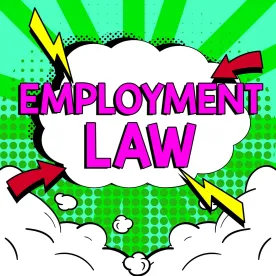Last week, the Equal Employment Opportunity Commission (EEOC) and the US Department of Labor’s Wage and Hour Division (WHD) signed a Memorandum of Understanding (MOU) to encourage enhanced law enforcement and greater coordination through agency information sharing, joint investigations, training, and outreach.
Information Sharing
The MOU authorizes the agencies, to the extent that the law permits, to share any information or data that supports the other agency’s enforcement activities. This information can be obtained in the course of an investigation or through any other sources, including information regarding:
-
employment discrimination based on race, color, religion, sex, national origin, age (for those 40 and older), disability, or genetic information;
-
unlawful compensation practices, such as violations of minimum wage, overtime pay, or wage discrimination laws;
-
employee working and living conditions;
-
denial of required break times or places for nursing mothers to express milk;
-
unlawful tip retention;
-
unlawful denial of family and medical leave and leave-related discrimination based on disability, pregnancy, or caregiving responsibilities;
-
employee misclassification; and
-
unlawful retaliation against workers who assert workplace rights.
Sharing information under the MOU does not waive any applicable privilege or immunity.
Coordinated Investigations and Enforcement
If an investigating agency determines that conduct may have occurred that the other agency may deem unlawful, the MOU states that the investigating agency will (1) inform the potential aggrieved party that he or she may be able to file a charge or complaint with the other agency; and (2) provide the individual materials prepared by the other agency regarding rights and remedies under the other agency’s statutes, as well as contact information for the other agency.
Additionally, in appropriate cases, the agencies will decide whether to coordinate their investigations. If in a coordinated investigation, the WHD finds a violation and the EEOC finds reasonable cause, they will explore whether it is appropriate for one agency to settle or conciliate its matter while the other holds its matter in abeyance, considering under which statute it would be most feasible and practical to proceed.
Training and Outreach
The MOU authorizes the agencies to:
-
train each other’s staff to identify cases and issues that may arise under their respective jurisdiction;
-
engage in joint outreach and public education;
-
share or jointly develop training materials and programs; and
-
develop joint policy statements and technical assistance documents.
Additionally, the agencies may meet periodically and routinely share information about their enforcement priorities and other identified employment trends.
Term
The MOU took effect on September 13, 2023, and will remain in effect until terminated by the parties.
Agency leaders praised the MOU.
“The EEOC is pleased to expand our integral partnership with the Wage and Hour Division to better serve America’s workers,” said EEOC Chair Charlotte A. Burrows. “This collaboration will further effective outreach and enforcement with respect to the federal laws that advance equal employment opportunity and fair pay, including the recently enacted PUMP Act and Pregnant Workers Fairness Act.”[1]
“Our partnership with the Equal Employment Opportunity Commission helps us work across federal agencies to ensure workers are treated fairly, paid fairly and do not have to fear retaliation when demanding the workplace protections that federal labor laws such as the PUMP Act require,” said Principal Deputy Wage and Hour Division Administrator Jessica Looman.
For employers, the MOU likely means more far-reaching and costly investigations, as well as increased pressure to settle claims.
[1] The PUMP Act amends the FLSA to require covered employers to provide an appropriate space and reasonable break time to nursing employees to express breast milk for their nursing child each time that the employee needs to do so. And, the Pregnant Workers Fairness Act requires covered employers to provide reasonable accommodations to a worker’s known limitations related to pregnancy, childbirth, or related medical conditions, unless the accommodations would cause the employer an undue hardship.



 />i
/>i
